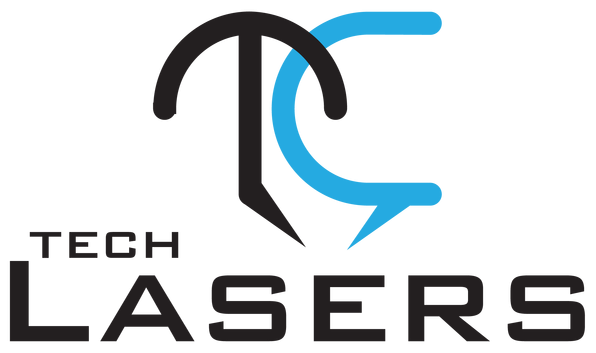Introduction to AI Workstations
AI workstations have become a cornerstone for many forward-thinking businesses. These powerful machines are designed to handle complex algorithms and extensive data sets that standard computers cannot process efficiently. They enable deep learning, data analysis, and high-end simulations. Understanding their importance and how they function can offer incredible benefits to various industries. The role of an AI workstation has evolved from mere data crunchers to essential tools that drive innovation and efficiency. Businesses can harness their capabilities to push boundaries and achieve remarkably once-thought-impossible results.
Moreover, AI workstations are crucial for staying competitive in today’s fast-paced market. They provide the processing power needed to handle tasks like real-time data analytics and complex machine learning algorithms, which can give companies a substantial edge. Ignoring the development and implementation of AI workstations could leave businesses lagging behind their more tech-savvy competitors, making their adoption almost essential for future growth. These systems are valuable for their computational power and their ability to facilitate creative problem-solving and innovation, allowing companies to explore new avenues and expand their horizons.
How AI Workstations Transform Business Processes
AI workstations can significantly streamline business operations. For instance, AI’s ability to quickly analyze large data sets can enhance decision-making processes. This transformational capability is invaluable across healthcare, finance, and manufacturing sectors, where efficient data processing can lead to actionable insights and better outcomes. For instance, AI systems within the medical field can analyze large sets of patient information to detect patterns and anticipate potential health problems before they escalate.
Additionally, AI workstations can help manage risk in the finance sector by analyzing market conditions, customer behavior, and transaction histories. They can detect and prevent fraudulent activities more effectively than traditional methods. In manufacturing, AI-driven predictive maintenance can reduce downtime and optimize production, saving time and money. These efficiencies collectively contribute to a more streamlined and effective business operation, fostering growth and innovation. AI workstations can also assist in customer service, where chatbots and virtual assistants offer real-time support, improving client satisfaction and loyalty.
Real-World Applications Across Industries
The impact of AI workstations is noticeable in various industries:
- Healthcare: AI workstations analyze patient data, predict disease outbreaks, and assist in creating personalized treatment plans. It improves patient outcomes and allows healthcare providers to deliver care more efficiently and effectively, reducing human error and improving overall service quality. The potential for AI in medical research is also immense, with capabilities for simulating complex biological processes and developing new treatments faster than traditional methods.
- Finance: These machines detect fraudulent activities and improve trading algorithms. AI workstations can use advanced analytics and processing power to reveal patterns that people may not see easily, enhancing the security and profitability of financial operations. By leveraging AI for portfolio management, financial advisors can provide clients with more personalized and effective investment strategies, leading to better economic outcomes.
- Manufacturing: AI enhances predictive maintenance and optimizes supply chain logistics. By foreseeing potential machine failures before they happen, companies can maintain continuous production and reduce costs associated with unplanned downtimes. AI workstations also play a role in quality control, where they can detect product defects faster and more accurately than human inspectors, ensuring higher quality and consistency.
Companies adopting AI technology have seen marked improvements in efficiency and innovation. These improvements are not just limited to operational efficiencies but also to creating new business models and revenue streams. The adoption of AI in various industries is rapidly transforming the landscape, and those who embrace this technology are reaping substantial rewards. For example, in the retail sector, AI workstations enhance inventory management, personalize customer experiences, and optimize pricing strategies, driving higher sales and customer satisfaction.
The Future of AI in Business
As AI technology evolves, the capabilities of these workstations will continue to expand. The future may hold even more sophisticated tools to predict market trends better, automate more complex tasks, and provide even more granular data analysis. Investing in AI workstations could place companies at the forefront of technological advancement. Considering the fast pace of AI development, we expect AI workstations to become even more integral to business operations. The continuous improvement of AI algorithms and advancements in hardware will make these tools even more powerful and versatile.
The growing reliance on edge computing also signifies a shift towards faster data processing at lower costs, making AI even more accessible. Edge computing enables data to be processed nearer to its origin, decreasing latency and bandwidth consumption, particularly for real-time use cases. Combining AI and edge computing will enable more responsive and adaptive systems, creating opportunities for sectors like self-driving cars, smart urban developments, and instant surveillance technologies.
Expert Tips on Choosing the Right AI Workstation
When selecting an AI workstation, consider the following tips:
- Assess Your Needs: Determine the specific tasks that require AI capabilities. Understanding your primary needs can guide you in selecting the workstation with the correct specifications, ensuring you stay within your AI infrastructure. Consider factors such as the volume of data you will be processing, the complexity of the algorithms you run, and the required response times for your applications.
- Performance Specifications: Look for workstations with high GPU performance and substantial memory. The power of the GPU and the amount of memory are directly correlated with the efficiency and speed of processing large data sets and complex algorithms. Ensure that the workstation you choose has enough processing power to handle your most demanding tasks, and consider scalability options if your needs are likely to grow in the future.
- Scalability: As your business expands, so will your data and processing needs. A scalable system ensures that your initial investment remains valuable and adaptable to future demands. Look for modular systems that allow you to add or upgrade components as needed, and consider cloud-based solutions for additional flexibility and scalability.
- Support and Maintenance: Opt for providers offering robust customer support. Look for providers with a strong track record of customer satisfaction and responsiveness, and consider the availability of extended warranties and service agreements for added peace of mind.
Making an informed choice ensures that your investment in an AI workstation is sound and future-proof. By selecting the proper AI workstation, you can unlock the full potential of AI technology and drive your business to new heights of productivity and innovation.

 How SASE Solutions Empower Productive Workforces in a Digital Era
How SASE Solutions Empower Productive Workforces in a Digital Era  Excel vs PDF: Which Dominates Document Sharing in 2025? (Data-Driven Comparison)
Excel vs PDF: Which Dominates Document Sharing in 2025? (Data-Driven Comparison)  TitaniumInvest.com Money 2024: AI‑Driven Tools Outperform Traditional Banking
TitaniumInvest.com Money 2024: AI‑Driven Tools Outperform Traditional Banking  Why Your Link Building Efforts Might Fail
Why Your Link Building Efforts Might Fail  How to Request or Give Remote Control in a FaceTime Call on iPhone
How to Request or Give Remote Control in a FaceTime Call on iPhone  The Rise of Intelligent Automation in Business Operations
The Rise of Intelligent Automation in Business Operations  The Best Ideas for Designing Your Custom Printed Ring Binder
The Best Ideas for Designing Your Custom Printed Ring Binder  How Technology is Changing the Way We Play Hearts
How Technology is Changing the Way We Play Hearts  The Rise of Open Source: A Journey to Innovation and Collaboration
The Rise of Open Source: A Journey to Innovation and Collaboration 